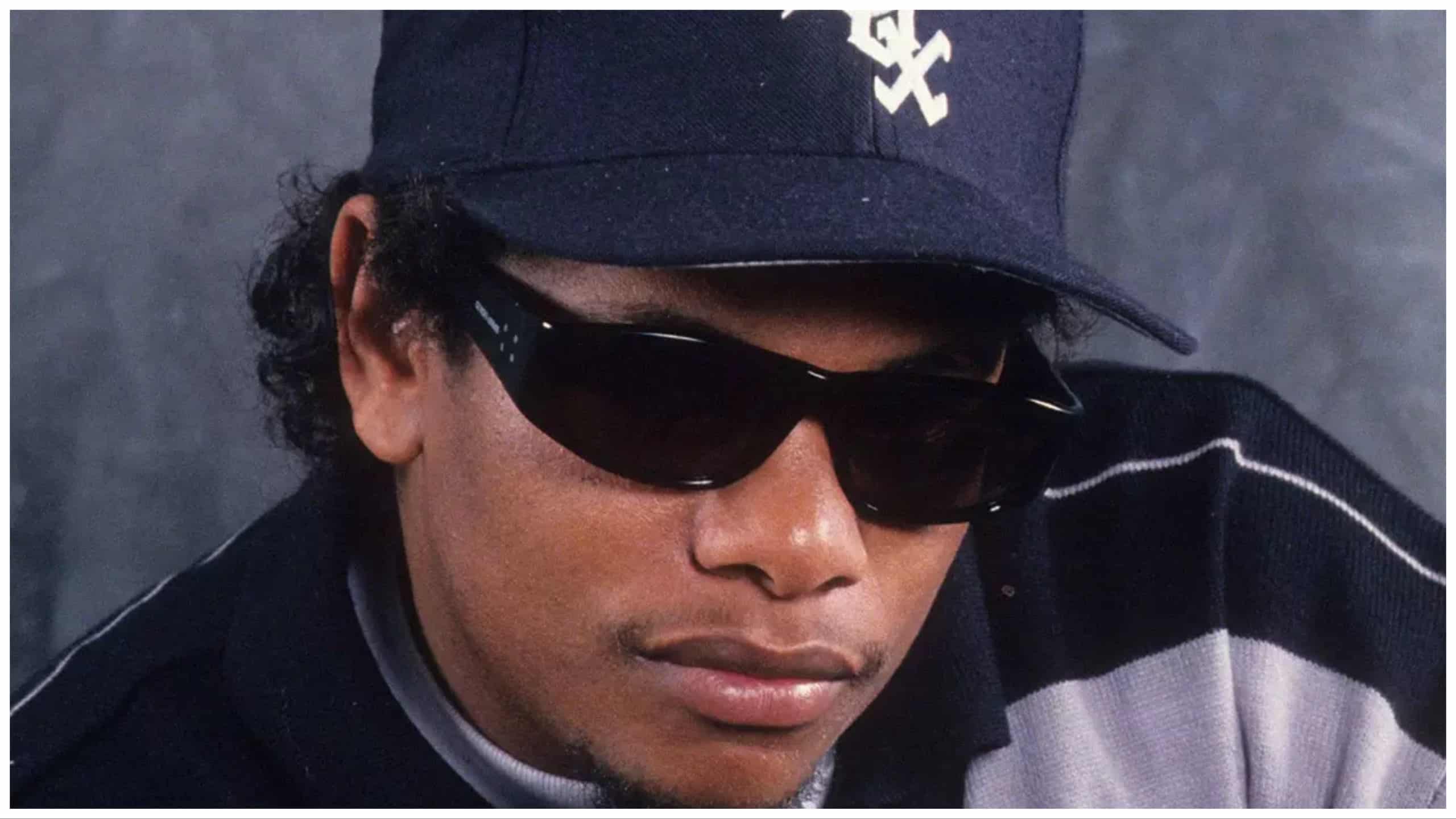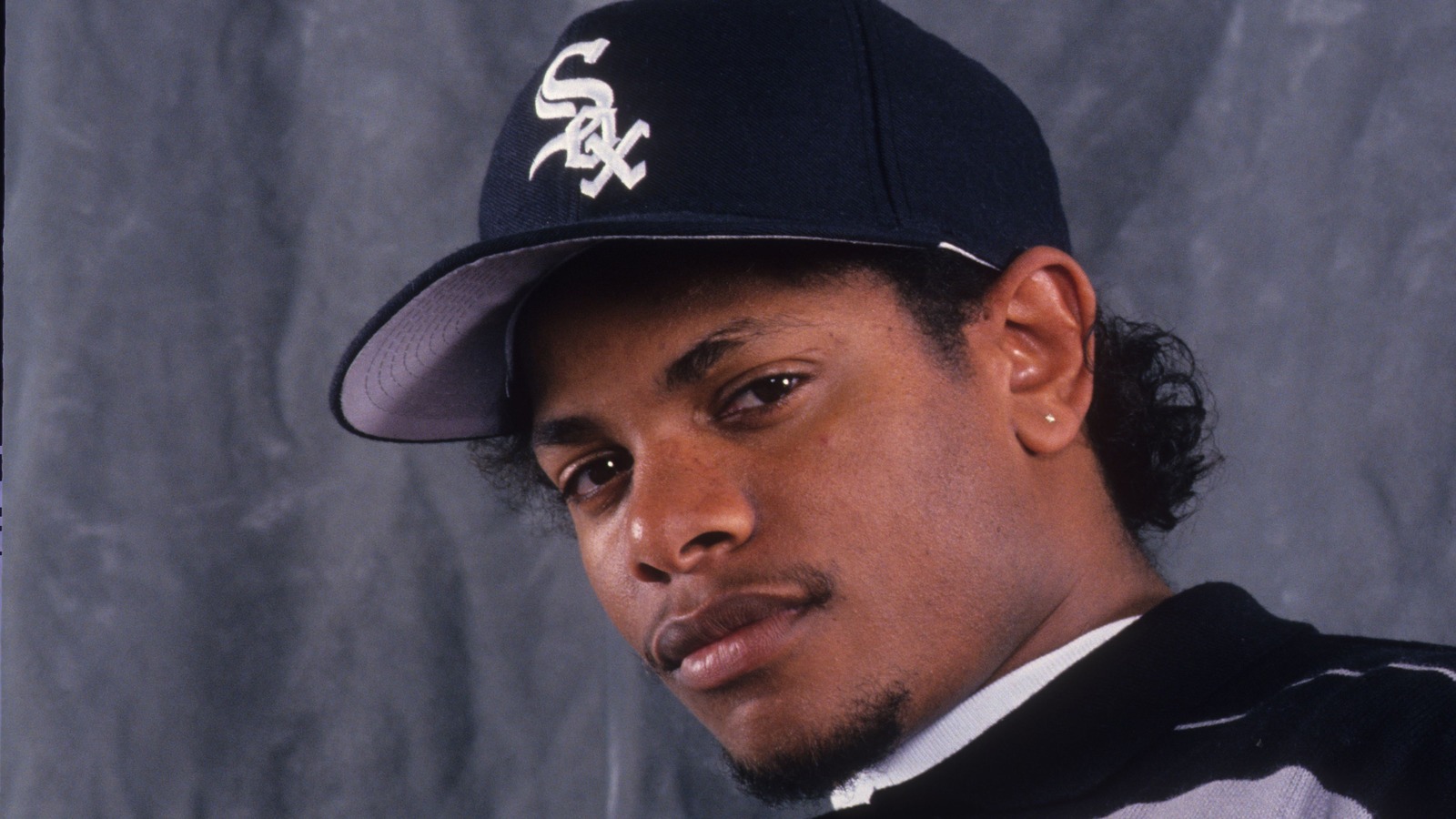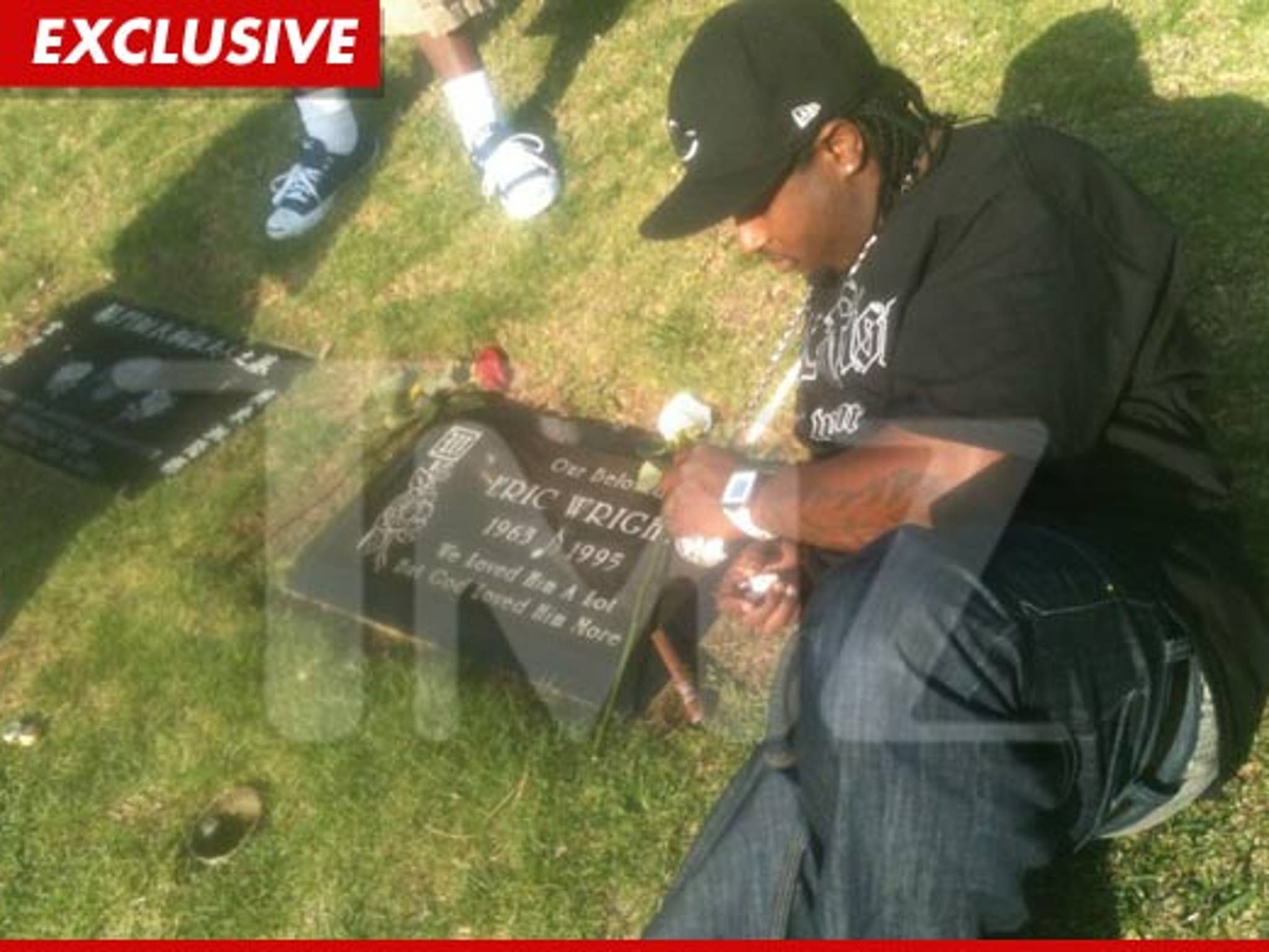Unraveling Eazy-E's Death: A Legacy Cut Short By AIDS
The sudden and tragic passing of Eazy-E, a pioneering figure in gangsta rap, sent shockwaves through the music world and beyond in 1995. His death, attributed to complications from AIDS, not only marked the end of an era for hip-hop but also thrust the realities of HIV/AIDS into the mainstream consciousness, particularly within the African-American community and among youth. Understanding the circumstances surrounding Eazy-E's death is crucial to appreciating his enduring impact and the vital lessons learned from his untimely departure.
Eric Lynn Wright, known globally as Eazy-E, was more than just a rapper; he was a cultural phenomenon, a savvy businessman, and a controversial figure who helped define an entire genre. His raw, unfiltered lyrics and unapologetic persona, first with N.W.A. and then as a solo artist, resonated with millions, giving voice to experiences often ignored by mainstream media. Yet, behind the bravado and the beats, lay a personal struggle that would ultimately claim his life, leaving behind a complex legacy that continues to be debated and celebrated.
Table of Contents
- Who Was Eazy-E? A Brief Biography
- The Shocking Diagnosis: Eazy-E and AIDS
- The Final Weeks: Eazy-E's Battle
- The Official Cause: Complications from AIDS
- Beyond the Official Report: Theories of Foul Play
- The Enduring Legacy of Eazy-E's Death
- Remembering Eric Wright: A Cultural Icon
- Conclusion: A Legacy That Still Resonates
Who Was Eazy-E? A Brief Biography
Before delving into the tragic details of Eazy-E's death, it's essential to understand the man behind the moniker. Eric Lynn Wright was born on September 7, 1964, in Compton, California, a city that would become synonymous with his music. Growing up in a challenging environment, Wright initially engaged in drug dealing to make a living, a past he would later openly acknowledge in his lyrics. However, his entrepreneurial spirit and keen eye for talent soon led him down a different path: music.
- Sankranthiki Vasthunam Movie Download
- Movierulz Kannada New Movie 2025
- 23 Movie 2025 Movierulz
- The Bollyflix
- Mkv Movies Pointin
Early Life and the Birth of N.W.A.
In the mid-1980s, Eazy-E used his earnings to establish Ruthless Records, a move that would forever change the landscape of hip-hop. His initial vision was to create a platform for emerging artists, but he soon found himself stepping into the spotlight as a performer. Ruthless Records became the home of N.W.A. (Niggaz Wit Attitudes), a group he formed with Ice Cube, Dr. Dre, MC Ren, and DJ Yella. Their debut album, "Straight Outta Compton," released in 1988, was a seismic event. Its raw, aggressive portrayal of street life, police brutality, and social injustice resonated deeply with a generation, despite drawing widespread controversy and condemnation from authorities. Eazy-E's distinctive high-pitched voice and audacious delivery became an iconic part of the group's sound, solidifying his status as a formidable force in music.
Solo Career and Ruthless Records
Following N.W.A.'s tumultuous breakup in the early 1990s, Eazy-E continued his career as a solo artist, releasing successful albums like "Eazy-Duz-It" and "Str8 off tha Streetz of Muthaphukkin' Compton" (released posthumously). He also focused on expanding Ruthless Records, signing and developing artists such as Bone Thugs-n-Harmony, who achieved massive success under his guidance. Despite the public feuds and disses exchanged with former N.W.A. members, particularly Dr. Dre, Eazy-E remained a central figure in West Coast hip-hop, admired for his business acumen and his uncompromising artistic vision. His personal life was also a subject of public interest, with reports of numerous children and relationships, a common theme among many music stars of that era. This vibrant, often chaotic, life would soon take an unexpected and tragic turn.
Here's a brief biodata of Eazy-E:
- 18 Webseries
- Movierulz Kannada Movie 2025
- Mkvcinemas Movie Download
- Hdhub4u Movie Download In Hindi
- Luxmovies In
| Attribute | Detail |
|---|---|
| Full Name | Eric Lynn Wright |
| Born | September 7, 1964, Compton, California, U.S. |
| Died | March 26, 1995 (aged 30), Los Angeles, California, U.S. |
| Cause of Death | Complications from AIDS |
| Occupation | Rapper, record producer, entrepreneur |
| Years Active | 1986–1995 |
| Labels | Ruthless, Priority, Relativity |
| Associated Acts | N.W.A., Bone Thugs-n-Harmony, Michel'le, J.J. Fad |
The Shocking Diagnosis: Eazy-E and AIDS
The circumstances surrounding Eazy-E's death were as sudden as they were devastating. In early 1995, the vibrant and seemingly invincible rapper began experiencing severe health issues that quickly escalated. His condition deteriorated rapidly, leading to his hospitalization, where the shocking truth about his illness came to light. The news of his diagnosis sent ripples of disbelief and sorrow through the entertainment industry and among his vast fanbase.
Initial Symptoms and Hospitalization
In February 1995, Eazy-E was hospitalized for severe respiratory issues. What initially seemed like a severe case of asthma or bronchitis quickly proved to be far more serious. Medical examinations revealed a grim reality: the rapper had contracted AIDS. This diagnosis was a profound shock, not only to Eazy-E himself but to everyone around him. The rapid onset of symptoms and the severity of his condition indicated that the virus had already significantly compromised his immune system. Official reports confirmed that complications from AIDS had ravaged his immune system by the time of his hospitalization, leaving him highly vulnerable to opportunistic infections like pneumonia, which he was battling.
The Public Revelation
Understanding the gravity of his situation and the potential impact his story could have, Eazy-E made the brave decision to reveal his condition to the public. From his hospital bed, he issued a statement on March 16, 1995, just weeks before his passing. In this poignant message, he acknowledged his diagnosis, urged his fans to practice safe sex, and expressed regret for his past lifestyle choices. "I'm not saying this because I'm looking for a soft ride," he wrote, "I'm saying this because I hope that I can save a lot of young kids' lives out there. I've got seven kids. There are a lot of kids out there who have to learn about safe sex." This revelation was a watershed moment, bringing the conversation about HIV/AIDS directly into the homes of millions, especially those who might not have been reached by traditional public health campaigns. It was a stark reminder that the virus did not discriminate, affecting individuals from all walks of life, regardless of their fame or perceived invincibility.
The Final Weeks: Eazy-E's Battle
Following his public announcement, Eazy-E's health continued to decline at an alarming rate. The severity of his AIDS-related complications meant that his body was struggling to fight off even common infections. His battle was intense and swift, a testament to how devastating the disease could be, particularly in the mid-1990s before the advent of highly effective antiretroviral therapies. Despite the grim prognosis, his friends and family rallied around him. Former N.W.A. members, including Dr. Dre and Ice Cube, visited him in the hospital, signaling a poignant reconciliation after years of public feuding. These visits underscored the deep bonds that once existed between them, transcending their past conflicts in the face of such a profound personal tragedy. The sight of these hip-hop titans putting aside their differences to support their ailing friend was a powerful moment, highlighting the human element behind the often-hardened personas they projected. As the days passed, it became increasingly clear that Eazy-E's condition was irreversible, and the music world braced itself for the inevitable. He soon revealed his condition to the public and, weeks after, on February 24, 1995, the music world mourned the passing of Eazy-E.
The Official Cause: Complications from AIDS
On March 26, 1995, at the age of 30, Eric Lynn Wright, known to the world as Eazy-E, passed away at Cedars-Sinai Medical Center in Los Angeles. The official cause of Eazy-E's death was confirmed as complications from AIDS. Specifically, he succumbed to AIDS-induced pneumonia, an opportunistic infection that frequently targets individuals with severely weakened immune systems due to HIV. Official reports confirmed that complications from AIDS had ravaged his immune system by the time of his diagnosis, leaving him vulnerable to such fatal infections. At the time of his passing, AIDS was still a highly stigmatized and often misunderstood disease, and effective treatments were not as widely available or as advanced as they are today. The rapid progression of his illness from diagnosis to death, a mere month, highlighted the aggressive nature of the disease in its later stages and the urgent need for greater awareness and medical breakthroughs. His death served as a stark, undeniable reminder of the deadly consequences of HIV/AIDS, compelling a generation to confront a health crisis that had too long been ignored or marginalized.
Beyond the Official Report: Theories of Foul Play
Despite the clear medical reports regarding Eazy-E's death, persistent rumors and theories of foul play have circulated for years, fueled by the intense rivalries within the hip-hop industry and the suddenness of his illness. These speculations often point fingers at various figures, particularly those with whom Eazy-E had public disputes. The most prominent of these theories suggests that he was intentionally infected with HIV, a claim that gained traction among some fans and even members of his family.
One of the most vocal proponents of the foul play theory was Suge Knight, the controversial co-founder of Death Row Records, who was a notorious rival of Eazy-E and Dr. Dre. In a 2003 interview on the Jimmy Kimmel Live! show, Knight made cryptic remarks about a "new thing" where people could be injected with AIDS, seemingly implying that Eazy-E's death was not natural. While Knight's comments were widely dismissed as sensationalism and an attempt to stir controversy, they resonated with a segment of the public already suspicious of the official narrative. The theory posits that Eazy-E might have been injected with the virus by someone seeking to remove him from the music scene, given his significant influence and wealth at the time.
However, it is crucial to emphasize that these theories remain unsubstantiated. There has never been any credible evidence presented to support the claim of foul play or intentional infection. Medical professionals and public health experts consistently state that HIV transmission occurs through specific bodily fluids and not through casual contact or mysterious injections in the manner suggested by these theories. The official medical records and the statements from Eazy-E's doctors unequivocally point to complications from AIDS as the cause of his death. While the allure of a conspiracy theory can be strong, especially when dealing with the death of a beloved and influential figure, it's important to rely on verified facts and scientific understanding. The tragic reality of Eazy-E's death was a battle against a deadly virus, not a clandestine plot.
The Enduring Legacy of Eazy-E's Death
Eazy-E's death was more than just the loss of a music icon; it was a pivotal moment that left an indelible mark on both the cultural landscape of hip-hop and the broader public health discourse. His passing not only marked the end of an era for gangsta rap but also highlighted the critical importance of safe sex and HIV/AIDS awareness, particularly within communities that were disproportionately affected by the epidemic.
Impact on Music and Culture
Even after his death, Eazy-E's influence continued to reverberate through the music industry. His posthumously released album, "Str8 off tha Streetz of Muthaphukkin' Compton," served as a final testament to his artistic vision. More significantly, his pioneering work with N.W.A. laid the groundwork for countless artists who followed, normalizing explicit lyrics and controversial themes in mainstream music. He demonstrated that independent labels could compete with major corporations, and his business acumen through Ruthless Records inspired a new generation of artist-entrepreneurs. The reconciliation with Dr. Dre and Ice Cube during his final days also had a lasting impact, symbolizing a mature closure to one of hip-hop's most notorious feuds. His life and career, culminating in his tragic death, became a cautionary tale and a source of inspiration, reminding artists of the power of their platform and the fragility of life.
Raising HIV/AIDS Awareness
Perhaps the most significant and lasting legacy of Eazy-E's death was its profound impact on HIV/AIDS awareness. His public confession from his hospital bed shattered stereotypes and brought the disease into the living rooms of millions. For many young people, especially those in urban communities, Eazy-E was the first celebrity they knew personally who had contracted AIDS. His story humanized the epidemic, dispelling myths and forcing a conversation about safe sex and prevention. Organizations dedicated to HIV/AIDS awareness and prevention often cite his case as a turning point, as it helped to destigmatize the disease and encourage open dialogue. His final message, urging young people to learn about safe sex, became a powerful public health announcement, far more impactful than any government campaign for many of his fans. The shock of Eazy-E's death served as a wake-up call, leading to increased testing, safer practices, and a greater understanding of the virus within communities that had previously been hard to reach.
Remembering Eric Wright: A Cultural Icon
Beyond the music and the controversy, Eric Lynn Wright, or Eazy-E, is remembered as a complex and influential figure. He was a visionary who saw the potential in a raw, unpolished sound and built an empire from it. His persona was often confrontational, but beneath it lay a sharp mind and a genuine desire to represent the realities of his environment. His memory is kept alive by his family, his collaborators, and the millions of fans who continue to listen to his music. Documentaries, biographical films, and countless articles have explored his life, his impact, and the tragic circumstances of his death, ensuring that his story remains relevant. He is celebrated for his role in shaping gangsta rap, for his entrepreneurial spirit, and for the unintended but profound role he played in raising global awareness about HIV/AIDS. Eazy-E's death was a loss, but his legacy continues to educate, entertain, and inspire.
Conclusion: A Legacy That Still Resonates
The story of Eazy-E's death is a poignant reminder of the fragility of life and the far-reaching consequences of personal choices. His battle with AIDS, and his courageous decision to go public with his diagnosis, transformed a private tragedy into a powerful public health lesson. While his passing was undeniably a loss for the music world, it catalyzed crucial conversations about HIV/AIDS prevention and awareness, particularly within communities that needed it most. Eazy-E's legacy extends far beyond his groundbreaking music; it encompasses his role as an unlikely public health advocate whose final act urged a generation to protect themselves.
His life, though cut short, left an indelible mark on culture, business, and public consciousness. Eazy-E's death serves as a historical marker, reminding us of the devastating impact of AIDS in the 90s and the progress made since. It also underscores the ongoing importance of education, safe practices, and compassion in addressing public health challenges. We encourage you to reflect on Eazy-E's story, share this article to spread awareness, and perhaps explore more about his incredible musical journey and the broader history of hip-hop. What are your thoughts on Eazy-E's impact? Share your comments below!



Detail Author:
- Name : Zula Kris
- Username : toy.brionna
- Email : aracely.connelly@hotmail.com
- Birthdate : 2005-04-18
- Address : 293 Donnelly Heights Port Pete, WI 09498
- Phone : 484.758.5415
- Company : Johnston and Sons
- Job : Aircraft Assembler
- Bio : Maxime accusamus esse ab voluptas. Quia non modi placeat id voluptas sed velit.
Socials
facebook:
- url : https://facebook.com/norma2263
- username : norma2263
- bio : Quis non eius nostrum iusto praesentium. Aut sapiente ut natus impedit porro.
- followers : 5828
- following : 142
instagram:
- url : https://instagram.com/normaortiz
- username : normaortiz
- bio : Dolorem ut id eos alias vitae nobis quasi et. Incidunt nisi rerum veritatis et.
- followers : 2938
- following : 2718
twitter:
- url : https://twitter.com/norma9114
- username : norma9114
- bio : Modi libero vitae ea. Iste est ea vitae non consequuntur harum sint. Et veritatis mollitia assumenda aliquid quaerat quia. Vel sed sed ea omnis.
- followers : 1238
- following : 180
tiktok:
- url : https://tiktok.com/@norma_ortiz
- username : norma_ortiz
- bio : Ullam sunt sequi cum consequatur. Incidunt reprehenderit nulla et explicabo ea.
- followers : 3851
- following : 2987